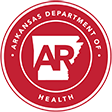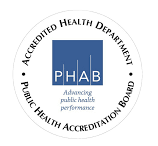Home Visiting Programs
The first few years of a child’s life are filled with opportunities for development. These years will serve as the foundation for many of the child’s cognitive, behavioral, and self-regulatory capabilities as well as for their physical and mental health in childhood and beyond.
Children who live in poverty or who are at-risk due to medical, developmental, socioeconomic, or other reasons face stressors that can impact normal growth and development. Interventions that occur in these formative years help to mitigate factors that place children at risk of poor outcomes. Home visiting is one such intervention that has been shown to improve outcomes for mothers and children in many areas.
Voluntary home visiting programs are proven to help parents become the best teacher, nurturer, and provider for their child. These programs offer individualized services for families i
- Assessments of individual family needs
- Needs related to finances, food security, employment, education, and family and social support
- The child’s developmental and socio-emotional needs
- Education and support for parents
- On prenatal health, newborn care, child development, and a other topics that concern new parents
- Assistance with enrolling in GED or other educational programs
- Referral and coordination with needed resources and services
- Referrals to community and state resources such as food banks, preventive services, mental health services, and early intervention services
In 2011, the Arkansas Department of Health’s Family Health Branch was awarded a grant through the Health Services and Resources Administration’s (HRSA) Maternal, Infant, and Early Childhood Education (MIECHV) program. The grant supported the implementation of five home visiting models that provide evidence-based and promising practice programming to Arkansas families during pregnancy and until the children enter kindergarten. The HRSA MIECHV grant continues to support these programs across Arkansas.
Nurse-Family Partnership
The Arkansas Department of Health directly implements the evidence-based Nurse-Family Partnership (NFP) home visiting model. The NFP model focuses on promoting the mother’s health during pregnancy, care of the child, child development, birth spacing, and the mother’s personal growth and development. The NFP model is designed for first-time, low-income women and their children and is delivered by public health nurses. Women can be enrolled through the 28th week of pregnancy and continue to receive home visiting services through the child’s second birthday.
- Click here for more information.
Arkansas Home Visiting Network
The Arkansas Department of Health maintains a strong public-private partnership with Arkansas Children’s Hospital to support the Arkansas Home Visiting Network (AHVN). The ADH’s home-visiting leadership team provides overall direction for MIECHV-funded home-visiting activities in the state and works with the AHVN to implement three evidence-based home-visiting programs and one promising approach. The evidence-based models are Healthy Families America, Home Instruction for Parents of Preschool Youngsters, and Parents as Teachers, and the promising approach is Following Baby Back Home.
- Click here for more information.
Healthy Families America
Healthy Families America (HFA) is an evidence-based program that helps families cope with life’s challenges by building on family strengths. The HFA programs work with at-risk families, including single-parent and low-income families as well as families with a history of substance abuse or domestic violence. The HFA program provides weekly home visits, and women can enroll while pregnant or within three months after giving birth and continue to receive services through the child’s first three to five years of life.
- Click here for more information.
Home Instruction for Parents of Preschool Youngsters
The evidence-based Home Instruction for Parents of Preschool Youngsters (HIPPY) model promotes school readiness and supports parents as their children’s first teacher. The program model is designed for parents with children ages 3-5. It is meant to help parents who need help in preparing their child for school, parents with past negative school experiences, and parents with limited financial resources. The HIPPY program model provides weekly, hour-long home visits for 30 weeks a year as well as monthly group meetings. The HIPPY home visiting paraprofessionals are typically drawn from the same population that is served by a HIPPY site and most have participated in the HIPPY program as a client.
- Click here for more information.
Parents as Teachers
Parents as Teachers is an evidence-based home visiting model that promotes the optimal early development, learning, and health of children by supporting and engaging their caregivers. The PAT model serves families from pregnancy through the child’s fifth birthday. The target population for the PAT model includes families with children that have special health care needs; families at risk for child abuse; parents with mental health concerns and/or substance abuse issues; first time parents; teen parents; and immigrant families. The model provides regular home visits with parent and child, regular group meetings, health and developmental screenings for children, and resources for families.
- Click here for more information.
Following Baby Back Home
Following Baby Back Home (FBBH) is a promising program that serves families with medically fragile infants who have been discharged from a neonatal intensive care unit in the state. The program focuses on reducing preventable re-hospitalizations, improve adherence to medical appointments and immunizations, and building caregivers skills and confidence related to providing a safe, nurturing home environment. The FBBH program uses both a registered nurse and licensed social worker to provide education, support, and case management services for families of high-risk infants.
- Click here for more information.
Professional Development for Home Visitors
The AHVN also provides professional development opportunities for all home visitors in the state through the AHVN Training Institute (AHVNTI). The AHVNTI has developed several instructor-led and online training modules focused on parenting education, child growth and development, health and safety, relationships, parental well-being, diversity, guidance and nurturing, and professional development.
The AHVNTI also organizes an Annual Conference that is open to all home visitors in the state. The conference includes an inspirational keynote speaker along with more than 20 sessions that provide home-visiting staff with the latest information on early childhood interventions and initiatives as well as professional development opportunities.
Continuous Quality Improvement in Home Visiting
The Arkansas MIECHV program is committed to improving processes and outcomes and to act responsively to improve the health and development of at-risk children and families in the state. To that end, the state has developed a comprehensive plan for continuous improvement that involves all home-visiting models and sites.


